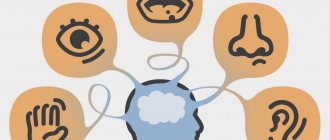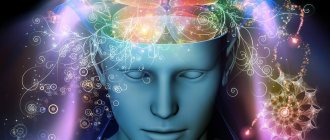29 Jun 2021 at 12:16 MRI of the head in Tushino 18160
If you often find yourself forgetting things and becoming too suspicious of others, you may need medical advice. Dementia is often perceived as analogous to memory loss. However, this disease, even in its acute form, is a common symptom of age-related dementia, the development of which can be stopped.
Use mnemonics
The computer uses binary code to store data. And then presents this data in a user-friendly form. Just like a computer, the human brain records data in a specific pattern. And later returns this data in a specific form.
It is this feature that mnemonics uses. It helps store information in the form of a specific code, allowing you to call up the information you need in a form convenient for you. Sounds a little complicated, right? But it's actually simple. When using mnemonics to remember information, you will use simple rhymes or abbreviations.
Alzheimer's disease
Aging is a natural process. And it is natural that with age a person may forget something. However, if an elderly person constantly forgets recent events, but at the same time remembers his youth well, if he is usually active and assertive, he suddenly becomes quiet, and vice versa, a previously reserved person suddenly commits many rash acts, if an extrovert suddenly begins to avoid communication even with members of his family If he loses interest in a previously very favorite hobby, one should suspect the onset of Alzheimer's disease. It is an incurable degenerative disease in which some neurons in the brain die. It is often called senile dementia of the Alzheimer's type.
Alzheimer's disease affects each person differently, but it also has common symptoms.
There are four stages of the disease: predementia, early dementia, moderate dementia, severe dementia.
Pre-dementia is the first, earliest symptoms of the disease, which are often not noticed, attributing them to age or stress. However, if you carefully observe a person, the disease can be recognized five years before its onset. Symptoms of pre-dementia:
- inability to recall recently learned information;
- inability to learn new information;
- inability to concentrate;
- inability to remember the meaning of any known word;
- disturbance of abstract thinking;
- apathy.
Of course, these manifestations do not always indicate imminent Alzheimer's disease, but it is better to contact a good specialist for examination.
Learn new things
Memory is like the ability to drive a car: if you don't use it, you risk losing it. To improve your memory and keep your brain sharp, learn something new as often as possible.
This is not a recipe for longevity. But all those who lived a long life used their brain all the time.
Learn a new dance, a new language, a new game, whatever. Learn something new that you find attractive. This will help improve your memory, gain new skills and friends. Besides, being socially active is very important. You will find out why below in the article.
What is dementia?
Dementia is characterized by the destruction of brain cells in a chaotic pattern. Often this process occurs simultaneously in several areas. Perhaps this will be an area of long-term memory or an area responsible for external reactions, that is, behavior. In the most pronounced cases, the speed of thinking decreases, the sense of orientation in space suffers, and the ability to speak disappears. As a rule, the disease progresses in a person’s brain until his self-awareness disappears completely.
Statistics:
Currently, there are more than 50 million people on the planet who have this diagnosis. This figure increases by 20% every year.
There are many types of dementia, such as Alzheimer's disease. The sad fact is that such diseases cannot be stopped, but they can be slowed down and stopped if detected in a timely manner.
Starting signs of dementia syndrome
At the initial stage, the following points can usually be highlighted:
Difficulty expressing thoughts
Everyone is familiar with the situation when a word or phrase is forgotten. People even have an expression: “It’s on the tip of your tongue.” It's okay if it happens rarely and doesn't bother you. However, if this is repeated constantly and causes problems when interacting with people, this is already a reason for suspicion.
Bad memory
If you are looking for the TV remote control 3 times a week because you don’t remember where you put it yesterday, this is a common situation. But if you have forgotten what your child told you yesterday or have difficulty remembering today’s lunch, then your cognitive abilities are already impaired.
Anxiety and mild paranoia
Of course, as we grow older, we all understand that life is a complex and complex process. Not everyone finds the right place in the world and that is why there are many disappointed people around us. Cynicism or pessimism is, unfortunately, the norm today. But if you hear a person absolutely seriously talking about the fact that someone is making an attempt on his life every day or that he is under surveillance, you should know that this is the beginning of dementia.
Sudden and uncontrollable changes in mood and character
It also happens that a stern and unsociable person suddenly becomes a sociable talker. Some will say that this is even good, but do not delude yourself. As a rule, any frequent and sudden changes in character are caused by the malfunction of some area of the brain. The same applies to too frequent depression.
Loss of temporal and spatial orientation
What date is today? What day of the week? What is the shortest route to a public transport stop? If trying to answer these questions is difficult, it means your brain cells have already begun to slowly deteriorate.
Losing interest in hobbies
Swimming pool activities, a stamp album, knitting and other simple and complex hobbies begin to rapidly disappear from a person’s life with the development of dementia. Apathy is dangerous on any farm, but on this one more so than others.
Lost
Typically, people do not observe each other much while at work. If one of your colleagues asks you the same question for the tenth time, and after receiving the answer, he slowly walks away with an absent look, you should take a closer look at him. Doctors say a person with dementia may lose the ability to concentrate and plan their actions.
Illogical dialogue
The brain suffering from dementia prevents a person from having a logical conversation. Thoughts are constantly confused, and a discussion of good weather can end on something completely abstract. People simply forget what exactly they wanted to express their opinion about.
"Plyushkin" syndrome
All useful and useless things are carefully hidden and stored for a rainy day. Sometimes older people become collectors of rubbish and garbage because they think that “everything can be useful on the farm.”
Get enough sleep!
Scientists from the University of California at Berkeley studied the process of memory loss in older people. It was found that memory impairment is associated with poor sleep. At the same time, another study found that naps help children maintain the energy they need to study well. When you combine these two results, you get one important conclusion: you need to get enough sleep to maintain and improve your memory.
The average adult needs eight hours of sleep per night. For you, this duration may differ by two hours more or less.
Remember how we used to put a book under our pillow before an exam or test? And it makes sense! The main thing is to read this book before going to bed. The best way to remember information is to read or review it before bed. This will help store the information in your brain.
Associated symptoms
To establish the exact cause of memory impairment and make a differential diagnosis, the doctor pays attention to the dominant signs. In diseases that cause memory impairment, accompanying symptoms are observed:
- Pain in the head area.
- Nausea, attacks of vomiting.
- Convulsive syndrome.
- Paralysis, paresis.
- Impaired motor coordination.
- Speech dysfunction.
- Inability to navigate in time and space.
- Inability to maintain balance, dizziness.
- Confusion of consciousness.
- Sensitivity disorder.
Vascular pathologies that occur in a chronic form lead to the development of discirculatory encephalopathy, for which the following symptoms are typical: hypokinesia (limitation of the volume and speed of voluntary movements), pseudobulbar syndrome (dysphonia - decreased strength and sonority of the voice, dysarthria - impaired speech pronunciation, dysphagia - impaired swallowing , enhanced reflex reactions of oral automatism).
At the same time, signs are revealed: increased tone of skeletal muscles, gait disturbance, increased tendon reflexes of an asymmetrical nature. In multiple sclerosis, pronounced motor disturbances are observed, including pathological pyramidal reflex reactions, decreased skeletal muscle tone, paresis, and increased fatigue.
Other symptoms: ataxia (impaired coordination in the movement of a muscle group), intention-type tremor, dysmetria (excessive or insufficient amplitude of voluntary, purposeful movements), nystagmus (frequent oscillatory movements of the eyeballs), deterioration of visual acuity and other disturbances of visual function.
Play some sports
A study conducted by Dr. David Jacobs from the University of Minnesota found that people who regularly engage in cardiovascular exercise at a young age have better memory in middle age (after 45 years of age). This research is not new. After all, it has long been proven in practice all over the world that exercises such as swimming, cardio fitness, running and others help prevent memory deterioration in the future.
To improve your memory, exercise. Start running, for example. This increases blood flow to the brain.
Diagnostics
To make an accurate diagnosis, a comprehensive examination of a person who forgets everything is carried out, after which the doctor can tell the name of the disease and how to treat it. Instrumental diagnostic methods help determine the condition of brain structures and elements of the circulatory system supplying the brain. Basic research methods:
- CT, MRI.
- Angiography.
- Doppler ultrasound.
- Electroencephalography.
To assess cognitive abilities, tests are used that involve memorizing and reproducing pictures, words, and sentences. Mental status is assessed using the Montreal (MoCa test) and other cognitive scales. A blood test shows the level of hormones and vitamins, the concentration of glucose, cholesterol and other substances.
Watch your diet
The term “brain food” has been around for a long time. This is a food that improves your memory and keeps your mind alert. A new study conducted at the University Hospital of Basel, Switzerland, found that green tea is one of these superfoods.
Nuts, ocean fish, olive oil are very effective in improving memory. Therefore, it is worth including these foods in your diet. And you need to regularly eat eggs, tomatoes, blueberries and drink red wine (within reason). Chewing gum is another proven way to improve memory. Because chewing gum increases your heart rate.
Development of Alzheimer's disease
The progressive disease leads to degradation of brain functions. The person becomes completely helpless, cannot walk, sit, or eat food on his own.
Alzheimer's disease is a consequence of physiological processes occurring in the body. Its symptoms manifest themselves in varying degrees of dementia.
Predementia
This condition is usually diagnosed after Alzheimer's has progressed to the later stages. Doctors reconstruct the medical history based on the memories of relatives and the patients themselves about events that occurred (on average) 8 years ago.
Among the initial symptoms of Alzheimer's disease there is nothing special:
- impairment of short-term memory; - progressive forgetfulness; - growing need for records of everyday affairs; - decreased interest in usual activities; - increasing apathy; - desire for solitude and isolation.
Early dementia
At this stage, the increasing destruction of cells and neural connections in the brain intensifies the initial signs of the disease, forcing patients to seek medical help. New Alzheimer's symptoms appear:
Meditation
Meditation is very popular today. It is touted as a miracle drug. But you can actually get real benefits.
First, meditation can speed up your heart rate. This way, there will be more blood flow to the brain.
Secondly, meditation helps you relax and focus on yourself. And this has amazing long-term benefits for brain nutrition. It is also good for overall health.
Most meditation techniques and exercises involve deep breathing. And deep breathing is a great way to improve memory and relieve stress. By practicing these exercises for a couple of minutes a day, you can improve your posture, mood, and feel more energetic. And all this is free!
Enjoy nature
A walk in the fresh air is very beneficial. And especially if you want to improve your memory. Researchers at the University of Michigan tested this theory.
A group of subjects were asked to take a walk in the fresh air. And then remember the list of elements. Another group was walking in the city and they were asked the same question. The results of the first group were 20% better. The researchers didn't stop there. Now the first group looked at natural landscapes, and the second - at photographs of cities. And again the first group coped with the task better.
Next time you forget something, try looking at a photo of a forest.
According to the Aivazovsky method: how to improve memory?
Cicero also said that “memory weakens if it is not exercised.” Therefore, the brain needs training no less than the body. Memory needs to be developed throughout life.
Systematic exercises to train memory and attention can improve cognitive abilities and delay their impairment, says Yulia Levchenko.
Various techniques are used for this:
- memorizing texts, songs, poems;
- solving crosswords, logical puzzles;
- associative memory games;
- Aivazovsky’s method (you need to look at an object for five minutes, and then, closing your eyes, restore it in memory or in a drawing);
- Cicero’s method (what needs to be remembered is located in a well-known place, for example, in a room; when “passing” the room, the necessary information pops up);
- Exercises based on Schulte and Bourdon tables.
“Also, to improve memory and prevent memory impairment, lifestyle modification is important: good nutrition, healthy sleep, quitting smoking, physical activity,” recalls the neurologist.
Neurolinguistic programming
The concept of NLP is relatively new. But it's very effective. After all, this can teach you to expand your boundaries. The basis of NLP is human limitations, which can be overcome through self-hypnosis. Spend some time alone.
Ask yourself what is causing your memory loss. Understanding the causes can help you say goodbye to memory loss and improve your mental abilities. It works almost the same as a placebo. Meditation is a great prelude to NLP. They work great together with diet and exercise.
Consequences and prognosis
With mild to moderate severity of cognitive impairment, the prognosis is relatively favorable. Adequate therapy in some cases slows the progression of brain dysfunction and prevents further memory deterioration. The consequences of severe forms include social maladaptation and inability to self-care.
In the later stages of the course, the patient needs outside care around the clock. With vascular dementia, the probability of death within 5 years is more than 60% of cases. A high mortality rate correlates with concomitant pathologies - arterial hypertension, atherosclerosis, heart failure.
There are many diseases that provoke impaired cognitive abilities, when you constantly forget everything. A neurologist can make an accurate diagnosis and prescribe the correct treatment.
373
Stop being Caesar
Multitasking is great for productivity. No! It's a lie. Despite the fact that all companies want their employees to have this skill. But in reality, this significantly reduces the number of tasks that an employee can complete in a certain period of time.
Focus on one thing at a time. Start your day with the most important tasks. Then take a short break. Resume work after lunch, leaving the simplest tasks for the last hour of work. This routine will allow you to keep everything in your head and not forget anything.
From stroke to diabetes: why does memory deteriorate?
As you know, human memory is divided into short-term and long-term. Short-term memory (also called primary or active memory) can hold a small amount of information for a short period of time. Let's say, if you need to remember a phone number, your brain uses short-term memory, and within a minute you will safely forget this number. Long-term memory is part of the subconscious and is capable of storing much more information, potentially indefinitely - throughout life.
“Long-term memory is the repository of our knowledge, skills and abilities. Its deterioration can be a consequence of many reasons: from domestic (lack of sleep, lack of nutrition, lack of routine, improper planning of the day, smoking), psychological (stress, depression, neuroses, overwork) to organic, metabolic and degenerative (head injury, dementia, etc. ),” lists neurologist “SM-Clinic”
Yulia Levchenko
.
You should worry about this if memory problems interfere with everyday life, work, and reduce the quality of life. In this case, there is a reason to consult a doctor to determine the cause and prescribe treatment, she advises.
“The fact that we sometimes cannot remember the name of a simple object or a famous actor is not a sign of dementia. And for elderly and senile people, mild memory loss is not a pathology at all. One of the early signs of dementia is a problem with short-term memory rather than long-term memory. This is manifested by increased forgetfulness about current events,” emphasizes Levchenko.
Memory disorder is often a consequence of heart problems, notes Nadezhda Bezemskaya, laboratory diagnostics doctor at the International Network of Independent Clinical Diagnostic Laboratories CITILAB.
Due to a malfunction of the heart (for example, during a stroke), the brain begins to lack oxygen, hence memory problems.
“The cause can be identified using laboratory tests. If there is a suspicion of heart disease, an analysis is carried out to determine the amount of the enzyme creatine phosphokinase in the body (CPK) and its fraction MB (from the English muscle - muscle and brain - brain). The level of CPK and its component CF allows the doctor to judge the root cause of pain in the heart area and the degree of tissue damage, and, as a consequence, the disruption of oxygen supply to the brain,” explains the doctor.
Also, damage to the kidney and liver tissue, diabetes and lack of vitamins can lead to memory impairment.
“If renal and hepatic failure is suspected, hepatic and renal biochemical markers are taken - creatinine, urea AST, ALT, GGTP. Decreased memory can also be caused by the so-called glucose starvation of the brain, this is due to a decrease in glucose levels, especially in diabetes mellitus. In this case, monitoring the level of glucose and glycated hemoglobin helps to identify not only the primary disease, but also to stop the consequences of diabetes,” says Bezemskaya.
Lack of vitamins B12 and folic acid also leads to memory problems. Memory deterioration also occurs with hypothyroidism, which is characterized by insufficient concentrations of thyroid hormones. To exclude or, on the contrary, confirm this disease, first of all, an analysis of thyroid hormones is carried out.
“Memory deterioration and failures are a very complex and multifaceted process of disorders in the human body,” says Nadezhda Bezemskaya. “With this symptom, it is necessary not only to observe and examine, for example, the level of vitamins, but also to look for the root cause under the supervision of a qualified doctor.”











